The facilitator in the Burundi conflict, Benjamin Mkapa came to Burundi for a 3-day visit. His intention was to revive the inter-Burundi dialogue.
Written by Agnès Ndirubusa. Translated by Pierre Emmanuel Ngendakumana
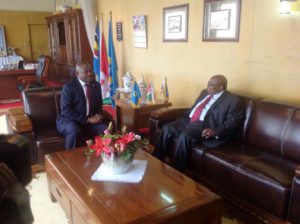
Mkapa at Bujumbura International Airport
On his arrival on Wednesday, December 7, Benjamin Mkapa embarked on a series of meetings. He reserved his first interview with the African chancelleries.
Eight meetings including an audience with President Pierre Nkurunziza, consultations with the various protagonists in the conflicts, were on the Thursday’s agenda.
The mediator received various embassies, representatives of political parties, civil society, religious denominations and the women and youth forum. After Bujumbura, he also intends to meet the other party in exile.
After these separate consultations, the former head of state will re-launch a new dialogue session in Arusha, Tanzania, with all the protagonists. Silence has been hovering over the dialogue since July.
The Mkapa roadmap is now clear. It is based on consultations initiated as early as December. The aim is to reach an agreement by June 2017 at the latest.
A statement that divides
On 1 December, a week before his visit to Burundi, the facilitator issued a communiqué which provoked intense controversy. Mkapa referred to “a remarkable improvement in the security situation in Burundi”. Although Mkapa welcomes all parties that have adhered to a non-violent approach, several voices interpreted the statement as favorable to the government.
The former Tanzanian president went on to say that “this improvement in Burundi security situation has also been welcomed by the international community”.
He stressed “the efforts of the government to stabilize Burundi”.
In this communiqué, Benjamin Mkapa also said he “followed closely the sessions of internal dialogue organized by the National Commission of inter-Burundi dialogue (CNDI)” and the political and constitutional evolution in Burundi “.
He also called on the authorities and political actors to safeguard the achievements of the EAC process.
Reactions
Those who met Mkapa
The Presidency of the Republic: “Bringing back the dialogue in Burundi”
The Presidency of the Republic indicates that it has insisted on the bringing back of the dialogue in Burundi. The deputy spokesman of the President, Jean-Claude Ndenzako specifies that participants in this dialogue should be exempt from any prosecution. “Those whose hands are not clean should be held accountable for the acts committed before claiming anything”.
Agathon Rwasa: “A call for compromise”
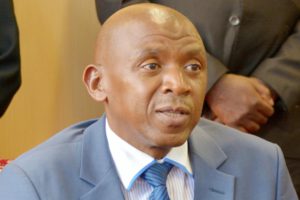 “Let us avoid going round in circles”, said Agathon Rwasa. He also said one of the reasons for the slowdown in the dialogue would be that Mkapa involves irrelevant actors. “To a political question, political actors”, he said. According to him, there is an urgent need for an inclusive and successful dialogue. To achieve this, Mkapa will have to convince the government party that seems to privilege the bringing back of the dialogue and wants to exclude the opposition in exile.
“Let us avoid going round in circles”, said Agathon Rwasa. He also said one of the reasons for the slowdown in the dialogue would be that Mkapa involves irrelevant actors. “To a political question, political actors”, he said. According to him, there is an urgent need for an inclusive and successful dialogue. To achieve this, Mkapa will have to convince the government party that seems to privilege the bringing back of the dialogue and wants to exclude the opposition in exile.
“The decision to bring it back must not come from a single party”. The first deputy speaker of the National Assembly said that “the time is not for accusations, but for compromise”.
Gilbert Bécaud Njangwa: “Deciding on participants in the dialogue first”
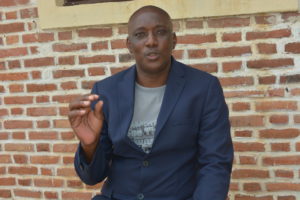 For the legal representative of the elections watchdog, the facilitation must remove any ambiguity on the question of participants in the dialogue. This is the case of the protagonists in exile who are prosecuted by the Burundian justice. “Will they benefit from a temporary amnesty in order to participate in the dialogue or will they be excluded from the dialogue?” Njangwa asks before concluding: “The facilitator must exhaust this issue so that we can move forward”.
For the legal representative of the elections watchdog, the facilitation must remove any ambiguity on the question of participants in the dialogue. This is the case of the protagonists in exile who are prosecuted by the Burundian justice. “Will they benefit from a temporary amnesty in order to participate in the dialogue or will they be excluded from the dialogue?” Njangwa asks before concluding: “The facilitator must exhaust this issue so that we can move forward”.
Abel Gashatsi: “Ending the crisis to prepare for the 2020 elections”
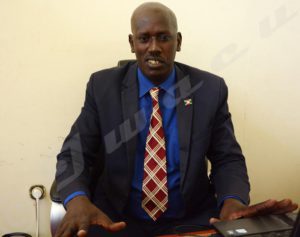 For the president of the Uprona party, the only way to total stability is frank, sincere and inclusive dialogue. “Inclusive dialogue does not exclude the possible prosecution of alleged criminals”, he says. According to Abel Gashatsi, the facilitator must interact with the CNDI to compile all the work. “This will allow us to get out of this crisis and prepare for the 2020 elections.”
For the president of the Uprona party, the only way to total stability is frank, sincere and inclusive dialogue. “Inclusive dialogue does not exclude the possible prosecution of alleged criminals”, he says. According to Abel Gashatsi, the facilitator must interact with the CNDI to compile all the work. “This will allow us to get out of this crisis and prepare for the 2020 elections.”
Evariste Ndayishimiye: “We do not negotiate with criminals”
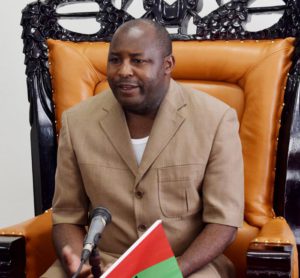 At the end of his interview with Mkapa, the secretary-general of the Cndd-Fdd party said that it is not possible for a criminal to negotiate how he should be punished. For Evariste Ndayishimiye, only honest people participate in the dialogue. The aim is to avoid impunity in the country. “What would you do with victims who would seek to revenge because you have granted immunity to criminals?”, he asked.
At the end of his interview with Mkapa, the secretary-general of the Cndd-Fdd party said that it is not possible for a criminal to negotiate how he should be punished. For Evariste Ndayishimiye, only honest people participate in the dialogue. The aim is to avoid impunity in the country. “What would you do with victims who would seek to revenge because you have granted immunity to criminals?”, he asked.
The secretary general of the ruling party said he asked Mkapa to help repatriate Burundian refugees who fled the 2015 crisis. “10 million Burundians cannot be held hostage by 35 prosecuted people.”
Edouard Nduwimana: “No one should be excluded from dialogue”
The Burundian Ombudsman said at the end of his interview with the facilitator that all parties that can provide solutions to the Burundian crisis must be heard. Prosecuted people may benefit from immunity. “There are notions such as the amnesty and the presidential pardon in all countries.”
Protagonists in exile
Jérémie Minani: “Doubts about facilitation”
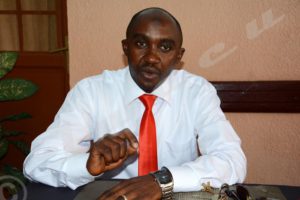 “The communiqué by the facilitator shows that he is on the side of the government”, says the communication officer for Cnared, the opposition platform. For Minani, this raises the question of whether Burundians can expect anything from this facilitation. The platform of the opposition in exile expresses its worries: “The path taken by the facilitation suggests that it is not a facilitation that will help to find a lasting solution to this crisis”, said Jérémie Minani who adds that the platform remains open to these negotiations: “If we are invited, we will respond.”
“The communiqué by the facilitator shows that he is on the side of the government”, says the communication officer for Cnared, the opposition platform. For Minani, this raises the question of whether Burundians can expect anything from this facilitation. The platform of the opposition in exile expresses its worries: “The path taken by the facilitation suggests that it is not a facilitation that will help to find a lasting solution to this crisis”, said Jérémie Minani who adds that the platform remains open to these negotiations: “If we are invited, we will respond.”
Pacifique Nininahazwe: “Mkapa plays the game of Nkurunziza”
This leader of the civil society speaks of “a facilitation that’s fallen in the trap of president Nkurunziza”.
The latter seems to be gaining time to carve out the constitution for another term. According to Nininahazwe, the facilitation plays the game of Nkurunziza in meeting all his requirements. “The dialogue must be about guaranteeing the Arusha Agreement, the rule of law and the fight against impunity,” said Pacifique Nininahazwe.
He also stressed the need for the facilitator to demonstrate his independent analysis and willingness to meet all parties, “including the armed party and the” Halt to third term “movement.
Sylvestre Ntibantunganya: “A revival of dialogue with commitments”
The former president calls for a revival of the dialogue accompanied by perceptible progress. He hopes that the facilitation will get commitments that suggest a way out of the crisis. This will enable the population to cope with other challenges, including poverty. Ntibantunganya urges the facilitator to invest more and find a compromise so that the interests of the nation can take precedence over that of the parties in conflict. “It requires a strong commitment by the parties to find a lasting solution.”
International organizations
Unwavering EU support for dialogue
“The European Union gives its full support to the efforts of the mediation to lead the dialogue between the Burundian authorities and the external opposition”, said the EU statement after the meeting with the facilitator.
The French ambassador to Burundi, Laurent Delahousse, said that the EU considers the way of compromise as unavoidable. “Without compromise, we will not find solutions to the political problems that the country is currently going through.”
“This spirit of compromise, which is incarnated in Arusha, has unfortunately been lost along the way. It is absolutely essential to find it”, he concluded.
Human Rights Watch: “Mkapa must not mince his words”
“We hope that the dialogue, after false starts, will produce concrete results, and that human rights violations will appear on the discussions,” said Ida Sawyer, Senior Researcher within the Africa Division at Human Rights Watch.
“Mkapa must not mince his words with Nkurunziza and the opposition.” For Human Rights Watch, the government must stop making false statements that the country is in peace. “Human rights violations are ongoing. Ida Sawyer evokes a country filled with fear. “President Nkurunziza and members of the opposition must stop human rights violations if they want dialogue to succeed.”
Amnesty International “urges all actors to cooperate with mediation”
“President Mkapa’s visit to Burundi and his commitment to involving the various actors from both inside and outside the country is encouraging,” said Amnesty International. The latter urges all actors to cooperate with the mediator in order to resolve the human and political rights issues that underlie the crisis. “We also call on President Mkapa to ensure that the voice of civil society is heard.”
Analysis
The success of this dialogue will depend on the real willingness of all the parties to emerge from this crisis through dialogue. If one party sees another alternative, the dialogue will not succeed. This will be proved by fanciful requests, tricks likely to torpedo the process in progress. “There will be risk of not reaching an agreement,” says a political scientist interviewed by Iwacu.
The facilitator is called for more firmness and authority, stresses the political scientist who recalls that Mkapa is supported by the EAC and the international community.
Above all, the facilitator must gain the trust and respect of all parties. Several observers recall the example of Nelson Mandela, mediator in the Burundi crisis of the 2000s. “He knew how to push everyone to compromise”, say many politicians.
What is worrying with the current facilitation is precisely the doubts about its ability to gather and win the confidence of the protagonists.
The Mkapa statement of 1 December speaking of a good evolution of the security context was, according to analysts, a “false step”. The facilitator also indicated that the internal dialogue conducted by the national commission for the inter-Burundian dialogue (CNDI) and the facilitation delegation had been closely monitored during a visit to Burundi.
For the opposition, all this demonstrates the bias of the mediator and is likely to discredit him, which will jeopardize the dialogue.

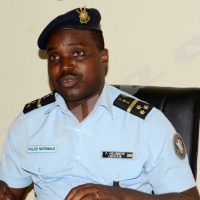
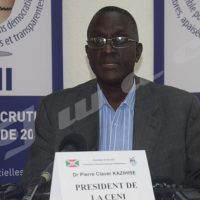
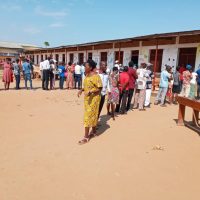
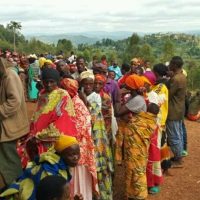
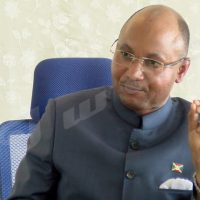













 IWACU Open Data
IWACU Open Data

